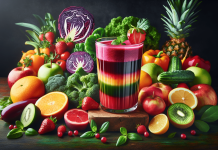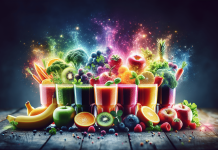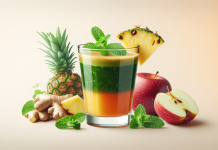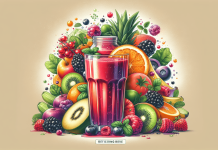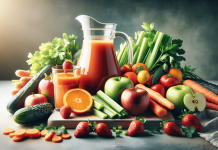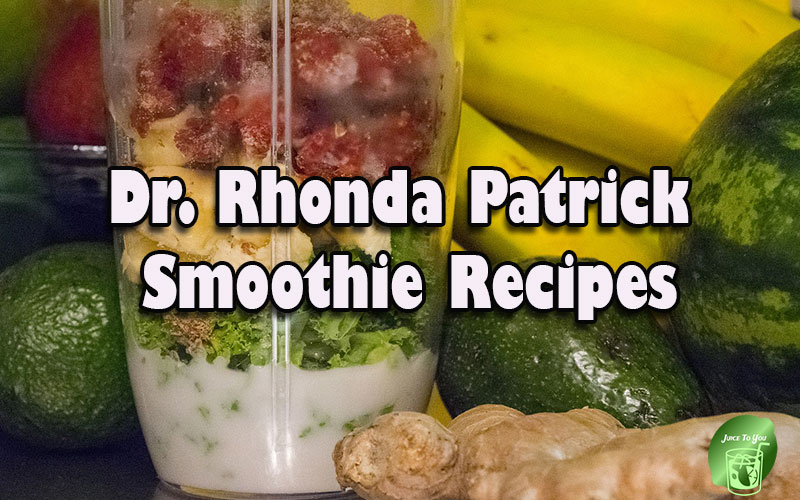Are you looking for natural ways to boost your mood and improve your mental well-being? Look no further than these juice recipes that have been specially curated to provide anti-depression benefits. Packed with vitamins, minerals, and antioxidants, these refreshing concoctions not only taste delicious but can also help alleviate feelings of sadness and anxiety. Whether you prefer a zesty citrus blend, a soothing green elixir, or a fruity concoction, these juice recipes are sure to uplift your spirits and leave you feeling rejuvenated. Say goodbye to the blues and hello to a brighter, happier you with these nourishing juice recipes.
Review contents
Understanding Depression
What is depression?
Depression is a common mental health disorder that affects millions of people worldwide. It is characterized by persistent feelings of sadness, a loss of interest or pleasure in activities, and a variety of physical and emotional symptoms. Depression can impact all aspects of a person’s life, including their relationships, work, and overall well-being. It is important to understand that depression is not a sign of weakness or a personal flaw, but a treatable medical condition.
Causes of depression
Depression can have various causes, and it is often a combination of genetic, biological, environmental, and psychological factors. Some people may be more prone to developing depression due to a family history of the disorder, while others may experience it as a result of significant life events such as trauma, loss, or major changes. Imbalances in brain chemicals known as neurotransmitters, such as serotonin and dopamine, are also believed to play a role in the development of depression.
Symptoms of depression
Depression can manifest itself differently in each individual, but common symptoms include persistent feelings of sadness, hopelessness, or emptiness, loss of interest or pleasure in activities, changes in appetite and weight, sleep disturbances, lack of energy or motivation, difficulty concentrating, and thoughts of self-harm or suicide. It is important to recognize these symptoms and seek professional help if you or someone you know is experiencing them.
Importance of Nutrition in Managing Depression
How nutrition affects mental health
Proper nutrition plays a significant role in managing depression and promoting overall mental health. Research has shown that certain nutrients can have a profound impact on brain function and mood regulation. A well-balanced diet rich in essential vitamins, minerals, antioxidants, and omega-3 fatty acids can help support the brain’s neurotransmitter production, reduce inflammation, and promote the growth of new brain cells.
Role of fruits and vegetables
Fruits and vegetables are an essential component of a healthy diet, and their consumption has been associated with a lower risk of depression. These nutrient-dense foods are rich in antioxidants, vitamins, and minerals that are important for brain health. They provide essential nutrients such as vitamin C, vitamin E, folate, and potassium, which have been linked to a reduced risk of depression and improved mental well-being.
Benefits of incorporating juices in your diet
Incorporating juices into your daily diet can be a convenient and refreshing way to increase your intake of fruits and vegetables. Juices are a concentrated source of essential nutrients and can provide a quick and easily digestible boost of vitamins and minerals. They can also help hydrate the body and promote healthy digestion. By including fresh juices in your diet, you can reap the benefits of these natural elixirs and support your mental health.
Choosing the Right Ingredients
Best fruits for anti-depression benefits
Certain fruits have anti-depression benefits and can be especially beneficial when incorporated into juices. Citrus fruits such as oranges, lemons, and grapefruits are rich in vitamin C, which has been shown to support brain health and reduce the risk of depression. Berries, such as blueberries and strawberries, are packed with antioxidants that help protect the brain from oxidative stress and inflammation. Other fruits like bananas, avocados, and pineapples contain mood-boosting nutrients such as tryptophan and vitamin B6.
Powerful vegetables for boosting mood
Vegetables are another essential ingredient for mood-boosting juices. Leafy greens like spinach and kale are rich in folate, a nutrient that plays a crucial role in the production of serotonin, a neurotransmitter that regulates mood and sleep. Other vegetables such as broccoli, bell peppers, and carrots are high in vitamins A and C, which have been linked to improved mental well-being. Incorporating a variety of colorful vegetables into your juices can provide a wide range of nutrients that support your mental health.
Superfoods for mental wellness
Superfoods are nutrient-dense foods that offer exceptional health benefits. Many superfoods have been found to have a positive impact on mental wellness. Ingredients such as chia seeds, flaxseeds, and walnuts are rich in omega-3 fatty acids, which have been associated with a lower risk of depression. Turmeric, known for its anti-inflammatory properties, can also support brain health and improve mood. Including superfoods in your juices can enhance their nutritional value and provide additional benefits for managing depression.
Recipes for Mood-Boosting Juices
Recipe 1: Citrus Bliss
- 2 oranges
- 1 lemon
- 1 grapefruit
- 1-inch piece of ginger
Instructions:
- Peel and prepare the fruits.
- Juice the oranges, lemon, and grapefruit.
- Grate the ginger and squeeze the juice into the mixture.
- Mix well and serve over ice. This refreshing citrus juice is packed with vitamin C and the zing of ginger, making it a perfect mood-boosting elixir.
Recipe 2: Berry Blast
- 1 cup blueberries
- 1 cup strawberries
- 1 cup raspberries
- 1 banana
- 1 tablespoon honey (optional)
Instructions:
- Wash and prepare the berries.
- Peel and chop the banana.
- Blend all the fruits together until smooth.
- Add honey if desired for sweetness.
- Pour into a glass and enjoy. This antioxidant-rich juice is bursting with the flavors of various berries and provides essential nutrients for promoting mental wellness.
Recipe 3: Green Goddess
- 2 cups spinach
- 1 cucumber
- 2 celery stalks
- 1 green apple
- Juice of 1 lime
Instructions:
- Wash and prepare the vegetables and fruit.
- Juice the spinach, cucumber, celery, and apple.
- Squeeze the lime juice into the mixture.
- Stir well and serve chilled. This invigorating green juice is packed with leafy greens and hydrating cucumber, providing a refreshing and nutrient-rich boost for your mental health.
Recipe 4: Tropical Delight
- 1 cup pineapple chunks
- 1 cup mango chunks
- 1 cup coconut water
- Juice of 1 lime
- Fresh mint leaves (optional)
Instructions:
- Peel and chop the fruits.
- Blend the pineapple, mango, and coconut water together.
- Squeeze the lime juice into the mixture.
- Add fresh mint leaves for extra flavor if desired.
- Pour into a glass and enjoy the tropical goodness. This tropical-inspired juice is a delicious blend of fruits, providing essential vitamins and minerals to support your mental well-being.
Recipe 5: Apple and Ginger Refresher
- 2 green apples
- 1-inch piece of ginger
- 1 cucumber
- Handful of fresh mint leaves
Instructions:
- Wash and prepare the ingredients.
- Juice the green apples, ginger, cucumber, and mint leaves.
- Mix well and serve chilled. This revitalizing juice combines the freshness of green apples, the warmth of ginger, and the cooling properties of cucumber and mint, creating a perfect pick-me-up for your mood.
Understanding the Nutritional Value
Vitamins and minerals in each juice
Each juice recipe provides a unique combination of vitamins and minerals that support mental wellness. Citrus Bliss is rich in vitamin C, which is essential for the production of neurotransmitters and reducing oxidative stress. Berry Blast offers a range of antioxidants, vitamin C, and potassium. Green Goddess provides folate, vitamins A and C, and calcium from the leafy greens and apple. Tropical Delight is packed with vitamin C, manganese, and potassium from pineapple and mango. Apple and Ginger Refresher provides vitamin C, potassium, and iron from green apples and ginger.
Antioxidants and their role in combating depression
Antioxidants play a crucial role in combating depression by reducing oxidative stress and inflammation in the brain. Fruits and vegetables, especially berries, are rich in antioxidants that protect brain cells from damage and support overall brain health. By regularly consuming juices packed with antioxidants, you can help reduce the risk of depression and improve your mood.
How these nutrients affect brain function
The nutrients found in fruits, vegetables, and other ingredients of the juices play a significant role in brain function. Vitamin C, for example, is essential for the synthesis of neurotransmitters, such as serotonin, which regulate mood and sleep. Folate supports the production of dopamine and serotonin and helps maintain optimal brain health. Omega-3 fatty acids, present in ingredients like chia seeds and walnuts, enhance brain cell communication and reduce inflammation, improving overall brain function and mood.
Incorporating Juices into Your Daily Routine
Finding the right time to consume juices
There is no specific time that is best for consuming juices. Some individuals prefer to enjoy their juices in the morning as a refreshing way to start the day, while others find it beneficial to have them as a midday pick-me-up or afternoon snack. Experiment with different times to find what suits your routine and preferences best. Just remember to listen to your body and enjoy the juices when you feel the need for a nutrient boost.
Frequency and portion sizes
The frequency and portion sizes of consuming juices will vary depending on individual preferences and needs. It is important to remember that while juices can provide a concentrated source of nutrients, they should not replace whole fruits and vegetables in your diet. Aim to include juices as part of a well-balanced diet and consume them in moderation. This will ensure that you are getting a variety of nutrients from different food sources and maintaining a diverse and healthy diet.
Tips to make juicing a habit
To make juicing a habit, it is helpful to establish a routine and set realistic goals. Start by incorporating juices into your weekly meal planning and gradually increase the frequency as you become more comfortable and experienced. Invest in a good-quality juicer to make the process quick and easy. Prep ingredients in advance, so they are readily available, and experiment with different recipes to keep things interesting. Consider joining online communities or juicing groups for motivation, inspiration, and sharing recipe ideas.
Possible Side Effects and Precautions
Allergies and sensitivities
While juices made with fruits and vegetables are generally safe for most people, it is important to be aware of potential allergies or sensitivities. If you have known allergies to certain fruits or vegetables, avoid using them as ingredients in your juices. Pay attention to any adverse reactions such as itching, swelling, or digestive discomfort when trying new ingredients. If you are unsure about potential allergies or sensitivities, consult with a healthcare professional.
Interactions with medication
Some medications may interact with certain fruits, vegetables, or herbs commonly used in juices. For example, grapefruit and its juice can interfere with the metabolism of certain medications, leading to increased levels in the bloodstream. If you are taking any prescription or over-the-counter medications, it is important to check with your healthcare provider or pharmacist to ensure there are no potential interactions with the ingredients used in your juices.
Consulting a healthcare professional
If you are experiencing symptoms of depression or have been diagnosed with depression, it is essential to seek professional help. While incorporating juices into your diet can be a complementary approach to managing depression, it should not be considered a sole treatment. A healthcare professional can provide a proper diagnosis, recommend appropriate treatments, and offer guidance on integrating juicing into your overall mental health plan.
Other Lifestyle Tips for Combating Depression
Regular exercise and its impact on mental health
Regular physical activity has been shown to have a significant positive impact on mental health and can help alleviate symptoms of depression. Engaging in activities such as walking, jogging, yoga, or dancing releases endorphins, which are known as “feel-good” hormones. Exercise also promotes better sleep, boosts self-esteem, and provides a healthy outlet for stress and anxiety. Aim for at least 30 minutes of moderate-intensity exercise most days of the week.
Getting sufficient sleep for emotional well-being
Quality sleep is essential for emotional well-being and can greatly affect mood and overall mental health. Establish a consistent sleep routine and aim for 7-9 hours of uninterrupted sleep each night. Create a sleep-friendly environment by keeping your bedroom dark, quiet, and at a comfortable temperature. Avoid electronic devices and stimulating activities before bed, and practice relaxation techniques such as deep breathing or meditation to promote a restful sleep.
Stress management techniques
Stress is a significant contributor to depression, so learning effective stress management techniques is crucial for maintaining mental wellness. Explore various stress-reducing strategies such as mindfulness meditation, deep breathing exercises, journaling, spending time in nature, or engaging in hobbies or activities that bring you joy. Adopting healthy coping mechanisms for managing stress can help prevent the onset or worsening of depressive symptoms.
Supporting Your Mental Health
Seeking professional help
While self-care practices and lifestyle changes can be beneficial for managing depression, it is important to seek professional help when dealing with mental health issues. Therapists, counselors, and psychiatrists can provide invaluable support and guidance through various therapeutic approaches and medications if necessary. Remember that seeking help is a sign of strength, and professionals are trained to assist you in navigating your mental health journey.
Building a strong support system
Having a strong support system is essential for managing depression. Reach out to trusted friends, family members, or support groups who can provide understanding, encouragement, and a listening ear. Social connections play a significant role in improving mental well-being and reducing feelings of isolation. Surrounding yourself with positive and supportive individuals can help you navigate the challenges of depression.
Incorporating self-care practices
Self-care practices are vital for supporting your mental health. Engage in activities that bring you happiness and relaxation, whether it’s taking a bath, practicing yoga or meditation, reading a good book, or spending time in nature. Prioritize self-care and make it a regular part of your routine. Remember that self-care looks different for everyone, so find what works best for you and make it a non-negotiable aspect of your life.
Conclusion
Understanding depression and its impact on mental health is crucial in finding effective ways to manage and alleviate symptoms. Nutrition plays a significant role in supporting mental well-being, and incorporating juices into your diet can be a convenient and enjoyable way to increase your intake of essential nutrients. By choosing the right ingredients, following mood-boosting juice recipes, and understanding the nutritional value, you can enhance your overall mental wellness. Remember to consult with a healthcare professional for a comprehensive approach to managing depression, and prioritize self-care practices and the support of loved ones to build a strong foundation for your mental health journey.


